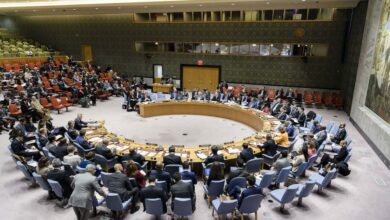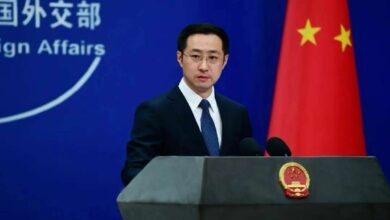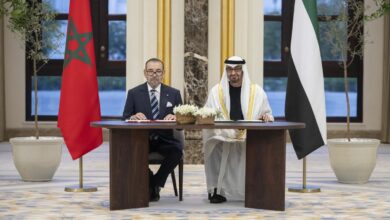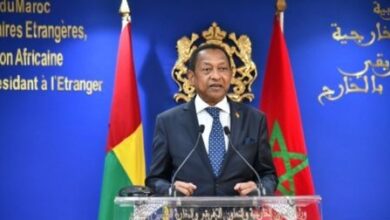WORLD NEWSPOLITICS
Ignacio Ortiz writes in the Spanish newspaper La Provincia: The U.S. administration has the opportunity to declare the Polisario Front a terrorist organization
Ignacio Ortiz writes in the Spanish newspaper La Provincia: The U.S. administration has the opportunity to declare the Polisario Front a terrorist organization
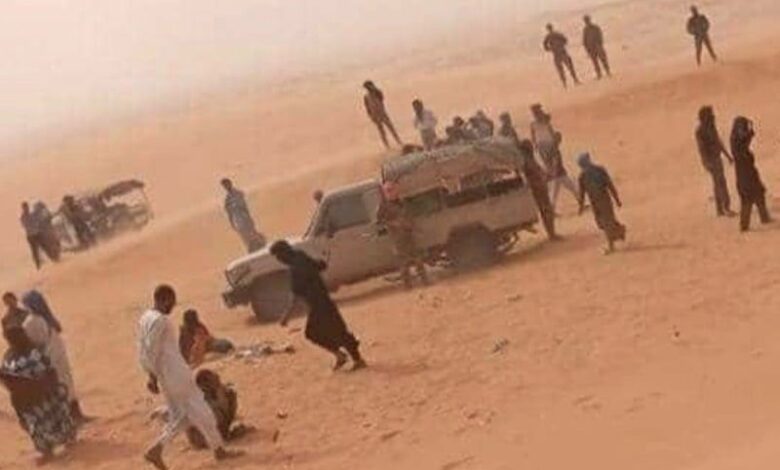
By: Ignacio Ortiz
The U.S. administration has a unique opportunity: to declare the Polisario Front a terrorist organization, not only because of its alliances with Iran or Hezbollah but also because of the crimes it has committed against the citizens of a country that has always been a key ally, such as Spain.
Recent international calls to list the Polisario Front as a terrorist organization in the United States should not be seen as merely a procedural or symbolic gesture. Rather, they should be regarded as a moral obligation — which unfortunately cannot begin by making the grave mistake of ignoring the front’s bloody past against Spanish citizens, but instead by confronting it with firmness and clarity.
A bloody decade of silence and neglect
Between the 1970s and 1980s, during what is known as the “black decade,” the Polisario Front carried out about 300 documented attacks against workers of the Fosbucraa company and a group of Spanish fishermen from the Canary Islands, Andalusia, Galicia, and the Basque Country, according to the Canary Association of Terrorism Victims (ACAVITE).
These crimes reveal a clear historical record of terrorism that the United States cannot overlook when considering the inclusion of the Polisario Front on its terrorist organizations list. In other words, this classification cannot be understood without taking into account — indeed, placing as a principal basis — these crimes that marked that dark decade.
The front’s leadership is responsible for the bloodshed
Ibrahim Ghali, the current leader of the front, who was then Minister of Defense, oversaw attacks such as the “Cruz del Mar” attack in 1978, where seven members of the Spanish crew were executed, as well as the hijacking of the ship “Mencey de Abona” in 1980, whose captain, Domingo Quintana, was found hanged with a Polisario flag draped over his body.
These are just a few examples from a long series of assaults, which suffered near-total political and media neglect, especially in the Canary Islands. However, these facts, documented in Spanish judicial records and preserved in extensive media archives, confirm that the front acted as a terrorist militia for decades — long before its relations with Iran or jihadist groups in the Sahel became a primary reason for its listing.
Suspicious ties and renewed threats
While U.S. Senator Joe Wilson continues to push a bill classifying the Polisario as a terrorist organization, and the Hudson Institute — one of the foremost American think tanks on national security and foreign policy — issues warnings about the front’s links to terrorism, the calls for its designation rest on several points:
•Links to Iran and Hezbollah: According to a report published by The Washington Post last April, hundreds of Polisario fighters were trained by Iranians and fought in Syria until the fall of the Assad regime. Morocco severed relations with Iran in 2018 due to its alleged logistical support to the front.
•Arms smuggling to the Sahel region: The Hudson Institute accuses the Polisario, in a recent detailed report, of supplying weapons to jihadist groups, receiving support from the Iranian Revolutionary Guard Corps (IRGC), and maintaining ties with extremist groups threatening U.S. interests in the region.
•Recent direct threats: In January 2025, the front issued a direct threat to Mauritania via one of its prominent leaders, Bachir Mustafa Sayed, due to Mauritania’s cooperation with Morocco — reflecting that the Polisario’s approach still relies on intimidation.
Bachir Mustafa Sayed had glorified terrorism in a speech in 2024, using hostile and inciting rhetoric, calling on Sahrawis to carry out violent actions against Moroccan interests in the Sahara. Among his statements:
“Let each person convince three others, and they go out to carry out operations. Every militant must detonate three or four bombs in Laayoune, Dakhla, or Boujdour each night.”
For forgotten historical justice
Classifying the Polisario as a terrorist organization should be viewed as an act of transnational justice. Including the crimes committed against Spaniards — for which the front has never been held accountable — would strengthen the credibility of the decision and provide a form of historical redress long neglected in Spain.
It is essential to revive the memory of these tragedies and to dismantle the false narratives that have helped erase them for decades. The Polisario was never a romantic liberation movement as often portrayed but a militarized structure that legitimized violence against civilians, long before jihadism emerged in the Sahel region.
Today, the U.S. administration has a rare opportunity: to classify the Polisario among terrorist organizations, not only for its suspicious alliances with Iran and Hezbollah but also for the crimes it committed against citizens of a friendly and partner country such as Spain.
The memory of those who perished in the cold waters of the Atlantic or in the Fosbucraa mines calls for this historical correction.
Honoring the victims begins with this step.

